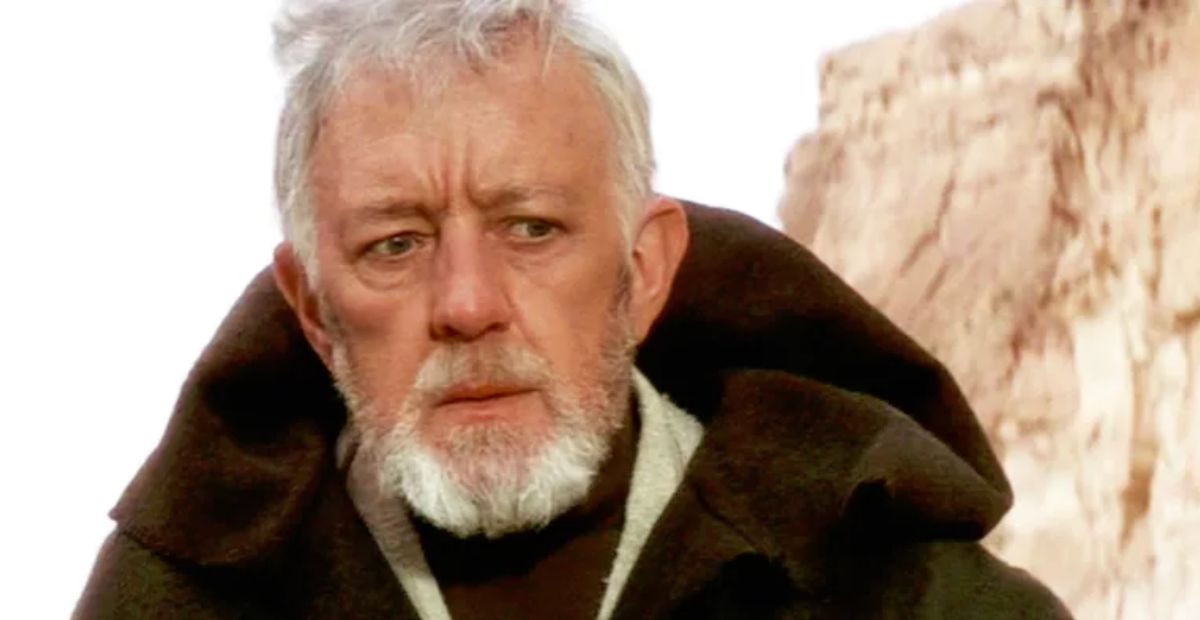By the time Star Wars: A New Hope was released in 1977, Sir Alec Guinness had already built a legendary career with roles in classics like The Bridge on the River Kwai, Lawrence of Arabia, and Great Expectations. Stepping into the role of Obi-Wan Kenobi gave the film instant credibility, but for Guinness himself, the experience was far from fulfilling.
According to The Guardian, in a private letter written during production, he expressed deep reservations about the role, writing: “Apart from the money, I regret having embarked on the film. I like them well enough, but it’s not an acting job—the dialogue, which is lamentable, keeps being changed and only slightly improved, and I find myself old and out of touch with the young.”
But here’s the thing, it wasn’t just hate. Guinness had a complicated relationship with Star Wars, and early on, his view was more open-minded than people often assume. In a 1977 interview on the Parkinson talk show, he explained how the script first landed on his dressing room table while he was finishing another film in Hollywood.
What caught his attention wasn’t the content, but the name attached. As he put it, the script had been delivered by George Lucas himself, “an up-and-coming and very respect-worthy young director,” which made Guinness take it seriously.
Still, his first instinct when he realized it was science fiction was hesitation. “Oh crumbs, this is simply not for me,” he recalled thinking. But as he began reading, something unexpected happened: he couldn’t stop. “The dialogue was pretty ropey,” he admitted, “but I had to go on turning the page. That’s essential in any script—you’ve got to know what happens next or what’s going to be said next.” That narrative drive was enough to win him over, at least in the moment.
Guinness agreed to take the role, and when he met Lucas in person, the two reportedly got along well. He didn’t love the dialogue, but he saw potential in the story and even asked for some of his lines to be adjusted to sound more natural.
That early stage of the project shows a very different side of Guinness—not dismissive or bitter, but curious, cautious, and willing to engage with a director he respected. He didn’t see it as great drama, but he saw something interesting in it—enough to go along for the ride.
But as the film exploded into a global phenomenon, Guinness’s feelings began to shift. The fame that came with playing Obi-Wan wasn’t the kind of attention he welcomed, and over time, it clearly wore him down. In his memoir, A Positively Final Appearance: A Journal, Guinness shared a telling anecdote about a young fan who approached him for an autograph. The boy proudly claimed to have seen Star Wars over a hundred times. Guinness, both amused and quietly horrified, agreed to sign—but only on one condition: that the boy never watch the film again.
Despite his reservations, Guinness agreed to the role—and he negotiated smartly. Instead of a large up-front payment, he secured a 2.25% share of the film’s profits. That deal would go on to earn him more than $50 million over the years, even though he later wrote that he regretted taking the part “apart from the money.”

